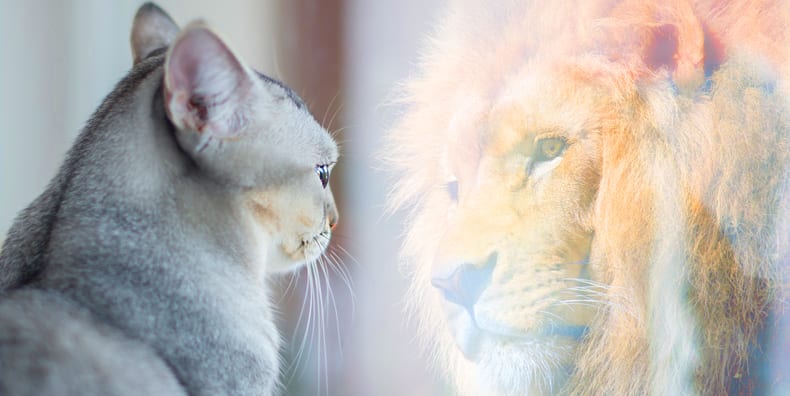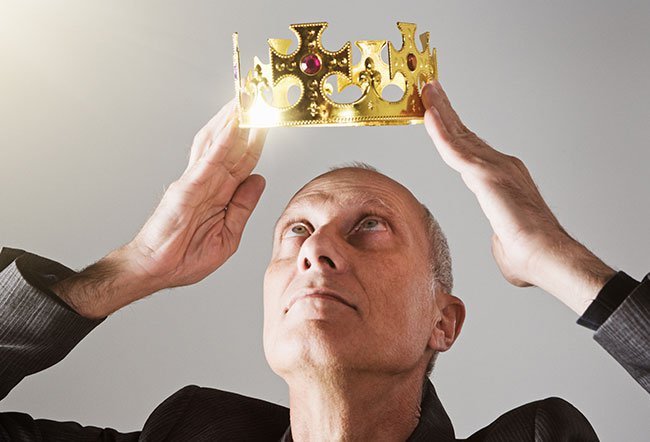How often do you compare your achievements to those of the world? Do you feel like a failure because you haven’t done as well as someone else on the internet, or in real life? There are many people in the world and it is hard to be different than other people. The truth is that everyone can’t do something great. It’s hard to be like others. But you can do something good and it will make you happy even if others don’t. There is no need to let delusions of grandeur get the best of you.
Contents
Meaning Of Delusions of Grandeur

The definition of delusions of grandeur is an excessive or unrealistic sense of self-importance. Often, people who suffer from delusions of grandeur believe that they are much more important than they actually are. People might think that they are the best and that their successes are better than anyone else’s. Delusions of grandeur can often keep people from reaching their full potential.
This definition is not applied to every single person with delusions of grandeur. It can be used when people think that they’re better than everyone else. It means that they don’t accept the fact that there will always be someone who is better than them. Delusions of Grandeur don’t only appear in adults, but children as well. Children might feel like they are stronger than they are because they think that is how old they are. It isn’t until later on in life where this disorder becomes prominent as many compare themselves to others around them.
Signs and Symptoms

People who suffer from delusions of grandeur often exhibit certain signs and symptoms which can include:
- Excessive pride or arrogance
- A belief that you are better than others
- Feeling as though you are above the law
- Making unreasonable demands on others
- Having a sense of entitlement
Causes
There is no one cause for delusions of grandeur. Rather, it is likely that a variety of factors can contribute to the development of this disorder. Some potential causes could include:
- A history of being overly praised or rewarded for minimal accomplishments
- Trauma or abuse
- Having a mental illness such as schizophrenia or bipolar disorder
- Living in an environment where there is constant pressure to succeed
Delusions of Grandeur Examples
There are many examples of delusions of grandeur, but some of the most common include:
- Believing that you are a famous or important person
- Feeling as though you have special powers or abilities
- Thinking that you are God or another religious figure
- Assuming that everyone knows who you are
- Believing that you will be the next president/prime minister
Comparing yourself to others and feeling like a failure because you haven’t done as well as them is one sign of delusions of grandeur. If this sounds like something you experience often, it’s important to seek help. There is no shame in admitting that you need assistance and getting the support you need to overcome your disorder. With time and treatment, it is possible to learn healthy coping mechanisms and find ways to feel better.
Treatment Options For Delusions of Grandeur

There are a number of treatment options available for people who suffer from delusions of grandeur. Treatment will vary depending on the individual and their specific needs, but some common approaches include:
- Therapy – Therapy is often a key part of creating delusions of grandeur. In therapy, you can work with a therapist to figure out what might be causing your disorder and learn how to deal with it.
- Medication – In some cases, medication may be recommended to help manage symptoms related to delusions of grandeur.
- Self-help strategies – There are many self-help strategies that can be helpful for managing delusions of grandeur. Some examples include journaling, setting realistic goals, and practicing positive thinking skills.
It is important to remember that success is not about where someone is right now, but about how far they have come and what things they did to get there. It can be hard to focus on progress, but try to remind yourself of all the good things you are doing.
Remember: There will always be someone who has done more or better than we have; this does not determine our own self-worth. Don’t let delusions of grandeur keep you from reaching for your dreams – work hard and keep moving forward!!
Therapies For Delusions of Grandeur
There are a number of different therapies that can be useful for treating delusions of grandeur. Some common therapies include:
- Cognitive Behavioral Therapy (CBT) – CBT is a type of therapy that helps you to identify and change the thoughts and beliefs that contribute to your idea that you are important or special.
- Family Therapy – A family therapist can help people who have delusions of grandeur. They can talk about their disorder with their loved ones and get support from them.
- Group Therapy – The goal of group therapy is to help people who are dealing with delusions of grandeur. People share their experiences and learn from others in the group.
- Psychotherapy – Psychotherapy is a type of help that makes it easier to manage your emotions. It teaches you how to do this.
- Self-help – People who have delusions of grandeur may find it helpful to journal, set realistic goals, or practice positive thinking skills.
Types Of Delusions

There are a number of different types of delusions including:
- Erotomanic – Believing that another person is in love with them when this is not actually the case (e.g., “I think my co-worker secretly loves me”). People can feel like they will never find love again. They might think that the other person who is in their relationship with them will fix it. But this kind of delusion often happens to people in relationships where one person thinks the other person will make them feel better.
- Grandiose – Believing that you are more important or powerful than you actually are (e.g., “I am a genius and everyone should know it”). This type of delusion often results in people behaving in an arrogant or entitled manner.
- Jealous – Believing that your spouse or someone is cheating on you. This type of delusion can cause a lot of turmoil and suspicion in relationships.
- Persecutory – Some people don’t like it when you are different. Sometimes you can feel like they are out to get you or make you not feel good. This type of delusion often results in people being easily angered or suspicious.
- Somatic – Believing that there is something physically wrong with you even when no evidence can be found (e.g., “I have cancer”). People who have a type of illness called a “somatic delusion” might go from one doctor to the next looking for help. They continue without treatment until they find out what is making them feel bad.
Helping Someone With Delusions of Grandeur

If you are helping someone who has delusions of grandeur, there are several things that you can do to be supportive. These include:
- Believe them – It’s important for family members and friends not to dismiss the person’s feelings or thoughts as “crazy” or untrue; instead, help them by providing support on their journey towards recovery.
- Be patient – Often people with strange beliefs need patience from those around them. Sometimes these beliefs make people act in strange ways. It’s hard to understand what someone else is going through. But you need to remind yourself that it is not their choice and try your best to stay calm when speaking with them so they don’t feel judged or misunderstood.
- Offer support – Let the person know that you are there for them and that you will help them in any way you can. This could include providing a listening ear, helping with household tasks, or accompanying them to doctor’s appointments.
- Seek professional help – If someone is having delusions of grandeur, they are not thinking about the real world. You should talk to a therapist or counselor who can help you and the person who has delusions of grandeur.
Conclusion
Delusions of grandeur are when you think you are good at something. You can go to the top, but it is hard. These delusions often involve fantasies about oneself as being an accomplished person with vast influence. They may also include other high-status people who recognize this special accomplishment (e.g., “I’m the president”). People who are afflicted with mental illness sometimes think they have special powers. They might think they can talk to people in their head, or that they can control the weather. They might also feel like it is important and powerful, like a god. If you think your friend is imagining things that might not be true, then what can you do? You can talk to them and try to help them. One important thing is to believe your friend even if it seems strange. Even if the belief sounds unrealistic, you should support them. You should be patient with the person who is struggling. It’s important that you get professional help from a therapist or counselor to support you.
If you are looking for affordable Online Counseling MantraCare can help: Book a trial therapy session


